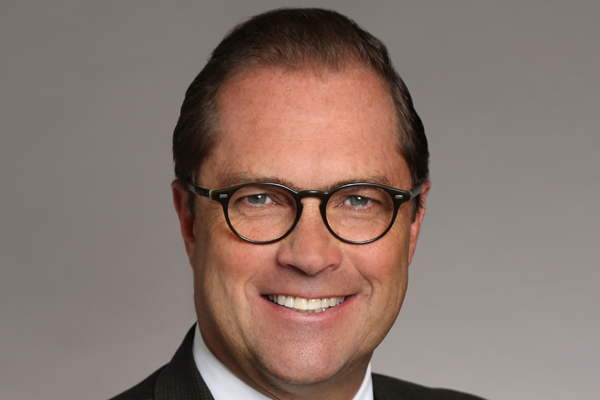Graham sees broadening of ADA's advocacy on his watch
Graham sees broadening of ADA's advocacy on his watch
- May 10, 2019 |
-
 CEO Update
CEO Update

2019 AWARD HONOREE: LOBBYIST OF THE YEAR
American Dental Association, Senior Vice President Mike Graham look beyond professional issues to improving public oral health
 Graham
Graham
May 10, 2019
CEO Update: What drew you to public policy?
Mike Graham: I worked for the county executive in Montgomery County (Md.) as an aide/intern in summer 1977 and kind of got the bug that way. I started on the Hill in the fall of 1979, briefly, as an intern with Sen. Mac Mathias (R-Md.), (then) worked for a state legislator, going to graduate school at night. When I finished that, I started with Rep. Clarence Long (D-Md.). I went to work for two years for Gov. Harry Hughes (D-Md.), then Gov. William Donald Schaefer (D-Md.).
CU: How did you get your first association job?
MG: In 1988 I went to work for the National Association of Rehabilitation Facilities, then I moved over after two years to represent the National Association of Medical Equipment Services for four years, then came to the ADA in 1995. So this is the third association I've worked for.
CU: How big is the ADA Washington office and what is your role?
MG: I'm the senior vice president, and we only have about 20 folks in the Washington office, and that's down from where we were when I started. But I would say we're doing twice the work that we did 25 years ago.
CU: The ADA website lists close to two dozen advocacy issues. What are the standouts in terms of importance to your members?
MG: You know, we always are able to get things for the dentists themselves, but the issues that matter most are the issues that improve oral health in the country. We've seen a dramatic increase in improved oral health, particularly among poor children, children on Medicaid. I think some of the things that we're doing at the ADA have made that difference, and not all of it is legislative.
CU: You've been advocating for the American Dental Association since 1995. What has kept you at ADA?
MG: One is, I love the mission. I love the fact that we're every day trying to improve America's oral health. But right up there is, I love the people, I love the dentists that I represent. … The dentists are great, the mission is great, I've got a great staff here—all of that, I think, has kept me here.
CU: What has changed for the association and the dental profession in that time?
MG: What hasn't changed is that we are very much a member-driven organization, and it's
the close connection with the members that we have at the ADA, and the direction we get from them, that guides what we do on Capitol Hill. … What's changed is that, when I started in 1995, if you looked around a conference table like this, there were all white-haired white guys sitting around that table. When we held this (most recent April 14-16) fly-in, most of the 500-plus students who attended were women of all different backgrounds and ethnicities. … When you have more than half of dental school students being women, that's completely different than 25 years ago where it might have been 10 or 15 percent, at best.
CU: How have D.C. and the lobbying profession changed?
MG: Back in those days, going all the way back to the '80s, I was a registered Republican, but I worked for two Democrat governors and a Democrat congressman. In addition, the state rep was a Republican and Mathias was a Republican. They never asked you your party affiliation, and people got along.
CU: What are the essential skills for a professional association lobbyist?
MG: I used to say, "Learn the five P's." You have to be good on the policy side. You have to know the process on the Hill. You have to know the politics that's involved. You have to be good with people. And lastly, you have to be persistent. "No" simply means that you've got to find another way to answer their question.
CU: What are the biggest challenges about being a professional association lobbyist today?
MG: My understanding is, at any one time, there are about 76,000 organizations that are represented every day on Capitol Hill. And everybody thinks their issue is equally important. So how do you get your issue across to 535 members of Congress when there's 76,000 voices trying to get their message across?
Career highlights
Navy veteran: Graham retired from the U.S. Navy Reserve in 2008 with the rank of commander, following a tour in Iraq that capped a 21-year career of on-and-off active duty.
Proudest achievements: Graham was involved in passage of the 1990 Americans with Disabilities Act. More recently, he headed ADA's lobbying on behalf of the Action for Dental Health Act, which was signed into law Dec. 11, 2018, and is meant to broaden access to dental care. ADA also lobbied for the SUPPORT Act, which Congress passed in October, to combat the opioid addiction crisis.
Education: Bachelor's degree in history from Catholic University, master's degree in public policy from the University of Maryland, Baltimore County
UPCOMING: Profiles of the two other 2019 honorees, Barbara Byrd Keenan, CEO of the Endocrine Society, and Jay Timmons, CEO of the National Association of Manufacturers.
To attend the Association Leadership Awards in Washington, D.C., on Oct. 3, 2019, visit www.ceoupdate.com/awards
MORE POSTS IN THIS CATEGORY:
